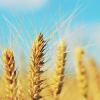
Be part of the exciting launch of WorldCereal's advanced processing system for field-scale cropland and crop type mapping. Join our webinar on October 17, 2024, to explore the WorldCereal cloud-based processing system, the Reference Data Module, the possibilities to train and implement crop type models and future extensions.
Ten months after starting phase II of the ESA-funded WorldCereal project, in which the NODES Research Group is actively involved, we invite you to attend this official webinar on the launch the cloud-based processing system for global cropland and crop type mapping.
Together with the other members of the WorldCereal team we will walk you through the key features of the processing system and show how you can generate personalized cropland and crop type maps. You will discover how to access the public in-situ reference data, upload your own reference data, train custom crop (type) models, and apply them to create detailed maps.
The NODES team has been further improving on the Reference Data Module (RDM), an essential part of the system that collects and harmonizes the reference data used by the WorldCereal system to produce cropland, crop type and irrigation maps. In the webinar we will be showing how to use the updated API and web-based interfaces to contribute as well as to access harmonized reference data.
Follow the WorldCereal project news, as we are developing several Massive Online Open Courses (MOOCs), with the next one scheduled to be available in November 2024, dealing with field data collection and model training.
Webinar Programme:
- Welcome and introduction (ESA)
- Project status update (VITO)
- The new cloud-based processing system (VITO)
- The WorldCereal Reference Data Module (IIASA)
- The WorldCereal classification system (VITO)
- Next steps & upcoming events (VITO)
- Q&A
Webinar Speakers:
- Zoltan Szantoi, ESA
- Kristof Van Tricht, VITO Remote Sensing
- Jeroen Degerickx, VITO Remote Sensing
- Hendrik Boogaard, Wageningen Environmental Research
- Arun Pratihast, Wageningen Environmental Research
- Santosh Karanam, IIASA
- Juan-Carlos Lasa Bayas, IIASA
Upcoming Events
Humboldt University of Berlin
IIASA at Fragile Lives 2024: Evidence for human development, food security, and peace in poly-crises
Biedermannsdorf Pfarrstadl (access via Kirchenplatz)
Interactive panel discussion featuring Elina Brutschin
Odeon Theater, Taborstraße 10, 1020 Vienna

